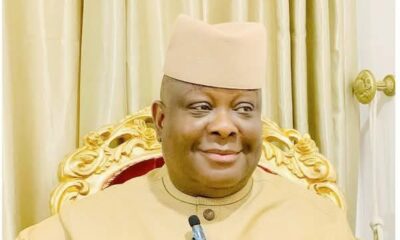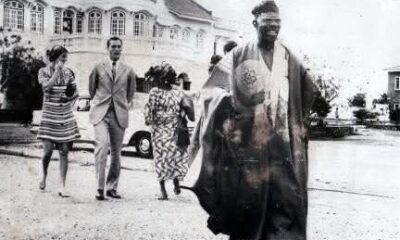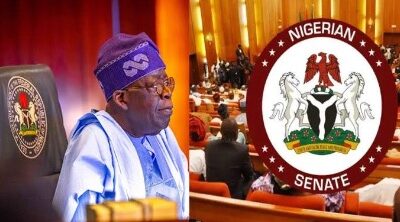Politics
Tinubu’s Policies Push Millions into Poverty – PDP BoT Chairman Wabara
In a striking statement, Senator Adolphus Wabara, the chairman of the Peoples Democratic Party’s Board of Trustees, has accused President Bola Tinubu’s administration of driving millions of Nigerians deeper into poverty.
During an emergency meeting in Abuja, Wabara highlighted the alarming rise in the cost of living and poorly executed economic reforms, stating, “The skyrocketing cost of living has pushed millions into deeper poverty.”
He emphasized the need for party unity over personal ambitions, saying, “We cannot let personal differences overshadow our shared vision for a better Nigeria.”
In Other News: Farewell to a Leader: Tinubu, Obi, Ganduje, Anyim, Umahi, and other governors bid a heartfelt farewell to the late Dr. Ogbonnaya Onu, former Governor of old Abia State and Minister of Science, Technology, and Innovation.
Stay Updated!
For more engaging news and updates, like, share, and follow Ekwutosblog
Politics
IMO WEST SENATOR IZUNASO WARNS AGAINST RISING TREND OF ILL-PREPARED LEADERS IN NIGERIA.
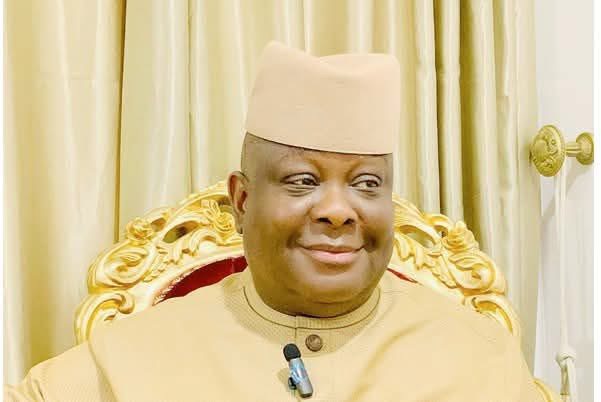
By Prince Uwalaka Chimaroke
17- DEC- 2025
The Senator representing Imo West Senatorial District and Chairman of the Senate Committee on Capital Markets, Senator Osita Izunaso, has expressed deep concern over what he described as the increasing occupation of political offices by individuals lacking the training, discipline, and values required for effective leadership.
Speaking in Abuja on Wednesday at the public presentation of Leadership 365: Daily Reflection for Effective Leadership, authored by Dr. Linus Okorie, President of the GOTNI Leadership Centre, the lawmaker noted that leadership in Nigeria is often misunderstood as merely holding public office rather than demonstrating character, competence, and vision.
Senator Izunaso stressed that authority does not automatically confer leadership, lamenting the absence of intentional leadership development structures in the country. According to him, many political actors assume leadership positions without adequate preparation, resulting in poor conduct, weak decision-making, and a disconnect from the people they serve.
He explained that true leadership reflects in attitude, speech, and behaviour, noting that leaders are constantly under public scrutiny and must therefore conduct themselves with responsibility and restraint. He added that leadership is not exclusive to political office holders, pointing out that leaders often emerge naturally in everyday settings based on influence and character rather than titles.
The lawmaker commended Dr. Okorie for contributing to leadership discourse through his book, describing it as a thoughtful work that highlights leadership as a daily responsibility applicable to all spheres of life. He emphasized that leadership is often revealed through action and integrity, not position, and can be identified even among children through observation of behaviour and influence.
Addressing young Nigerians, Senator Izunaso cautioned against the growing obsession with quick wealth, urging them instead to embrace mentorship and positive role models whose lives reflect sound values. He advised that money should not be the primary measure for choosing role models, stressing the importance of character and long-term impact.
The senator further observed that while technology and artificial intelligence are shaping the modern world, they can never replace the power of the human spirit. He noted that when properly guided, human capacity can drive meaningful change capable of transforming institutions, economies, and nations.
In his remarks, Dr. Okorie underscored the importance of deliberate leadership grooming, stating that nations that have achieved sustainable development did so by investing consciously in leadership capital. He explained that the book was written to encourage consistent self-reflection and inspire individuals committed to making a positive difference in society.
Observers note that concerns about leadership quality have remained a recurring issue in Nigeria’s governance discourse, with critics often pointing to weak institutions, policy inconsistency, and a political culture that prioritizes patronage over competence as major challenges to national development.
Politics
Engineers Farouk Ahmed, Gbenga Komolafe resign, President Tinubu nominates successors to the Senate for approval
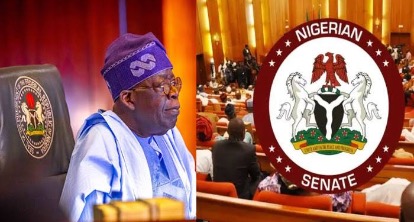
President Bola Ahmed Tinubu has asked the Senate to approve the nominations of two new chief executives for the Nigerian Midstream and Downstream Petroleum Regulatory Authority (NMDPRA) and the Nigerian Upstream Petroleum Regulatory Commission (NUPRC).
The requests followed the resignation of Engineer Farouk Ahmed of the NMDPRA and Gbenga Komolafe of the NUPRC. Both officials were appointed in 2021 by former President Buhari to lead the two regulatory agencies created by the Petroleum Industry Act (PIA).
To fill these positions, President Tinubu has written to the Senate, requesting expedited confirmation of Oritsemeyiwa Amanorisewo Eyesan as CEO of NUPRC and Engineer Saidu Aliyu Mohammed as CEO of NMDPRA.
The two nominees are seasoned professionals in the oil and gas industry.
Eyesan, a graduate of Economics from the University of Benin, spent nearly 33 years with the NNPC and its subsidiaries. She retired as Executive Vice President, Upstream (2023–2024), and previously served as Group General Manager, Corporate Planning and Strategy at NNPC from 2019 to 2023.
Engineer Saidu Aliyu Mohammed, born in 1957 in Gombe, graduated from Ahmadu Bello University in 1981 with a Bachelor’s in Chemical Engineering. He was announced today as an independent non-executive director at Seplat Energy.
His prior roles include Managing Director of Kaduna Refining and Petrochemical Company and Nigerian Gas Company, as well as Chair of the boards of West African Gas Pipeline Company, Nigeria LNG subsidiaries, and NNPC Retail.
He also served as Group Executive Director/Chief Operating Officer, Gas & Power Directorate, where he provided strategic leadership for major gas projects and policy frameworks, including the Gas Masterplan, Gas Network Code, and contributions to the Petroleum Industry Act (PIA).
Engineer Mohammed played a pivotal role in delivering key projects such as the Escravos–Lagos Pipeline Expansion, the Ajaokuta–Kaduna–Kano (AKK) Gas Pipeline, and Nigeria LNG Train.
EVENTS
PRESIDENT TINUBU CONGRATULATES SENATOR IFEANYI ARARUME ON HIS BIRTHDAY
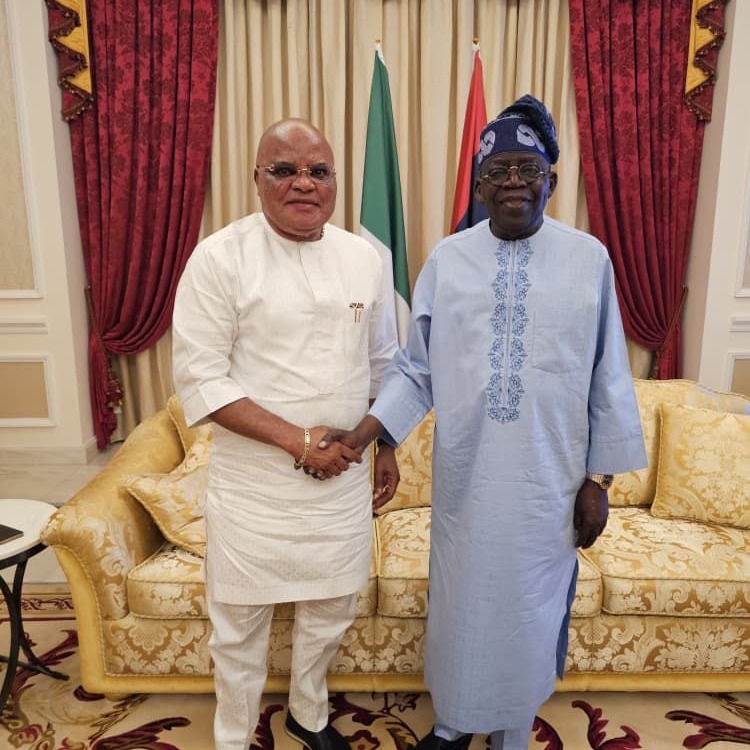
President Bola Tinubu felicitates Senator Ifeanyi Godwin Ararume, astute politician and accomplished businessman, on his birthday, December 16.
Senator Ararume’s odyssey in politics began in the late 1980s, when he served as the State Treasurer of the Liberal Convention in old Imo State. He later joined the National Finance Committee of the defunct National Republican Convention.
He represented Imo North in the 9th National Assembly. He was first elected in May 1999 and re-elected in April 2003. He also served on several committees and held other official roles.
President Tinubu commends the former senator for his years of service to the nation and contributions to its peace, unity, and progress.
The President describes Senator Ararume as a resolute and shrewd politician, highlighting his courageous and remarkable political journey through the years.
President Tinubu wishes Senator Ararume a happy 67th birthday and prays that God Almighty will grant him more years of good health and strength.
-
Business1 year ago
US court acquits Air Peace boss, slams Mayfield $4000 fine
-

 Trending1 year ago
Trending1 year agoNYA demands release of ‘abducted’ Imo chairman, preaches good governance
-

 Politics1 year ago
Politics1 year agoMexico’s new president causes concern just weeks before the US elections
-

 Politics1 year ago
Politics1 year agoPutin invites 20 world leaders
-

 Politics1 year ago
Politics1 year agoRussia bans imports of agro-products from Kazakhstan after refusal to join BRICS
-
Entertainment1 year ago
Bobrisky falls ill in police custody, rushed to hospital
-
Entertainment1 year ago
Bobrisky transferred from Immigration to FCID, spends night behind bars
-
Education1 year ago
GOVERNOR FUBARA APPOINTS COUNCIL MEMBERS FOR KEN SARO-WIWA POLYTECHNIC BORI

